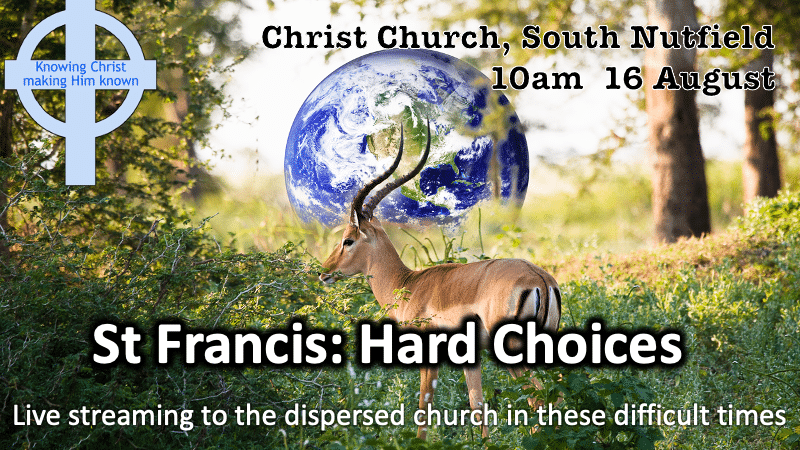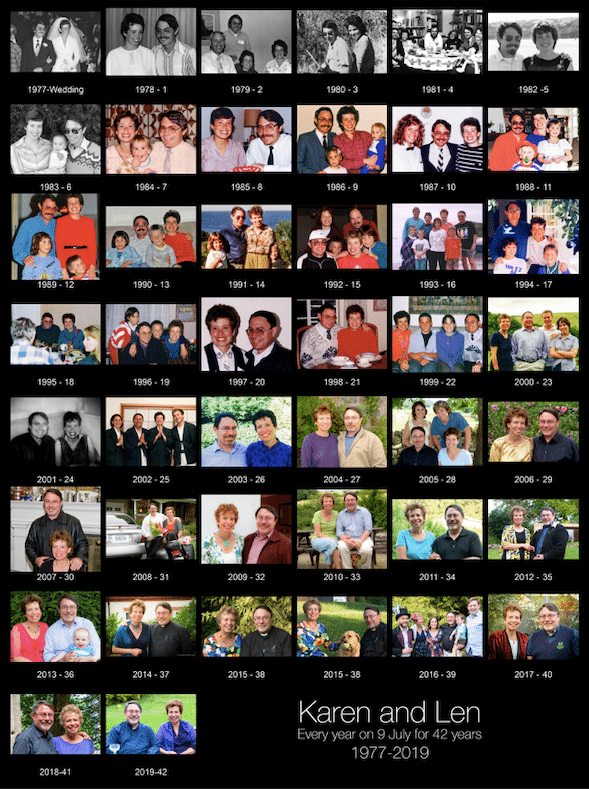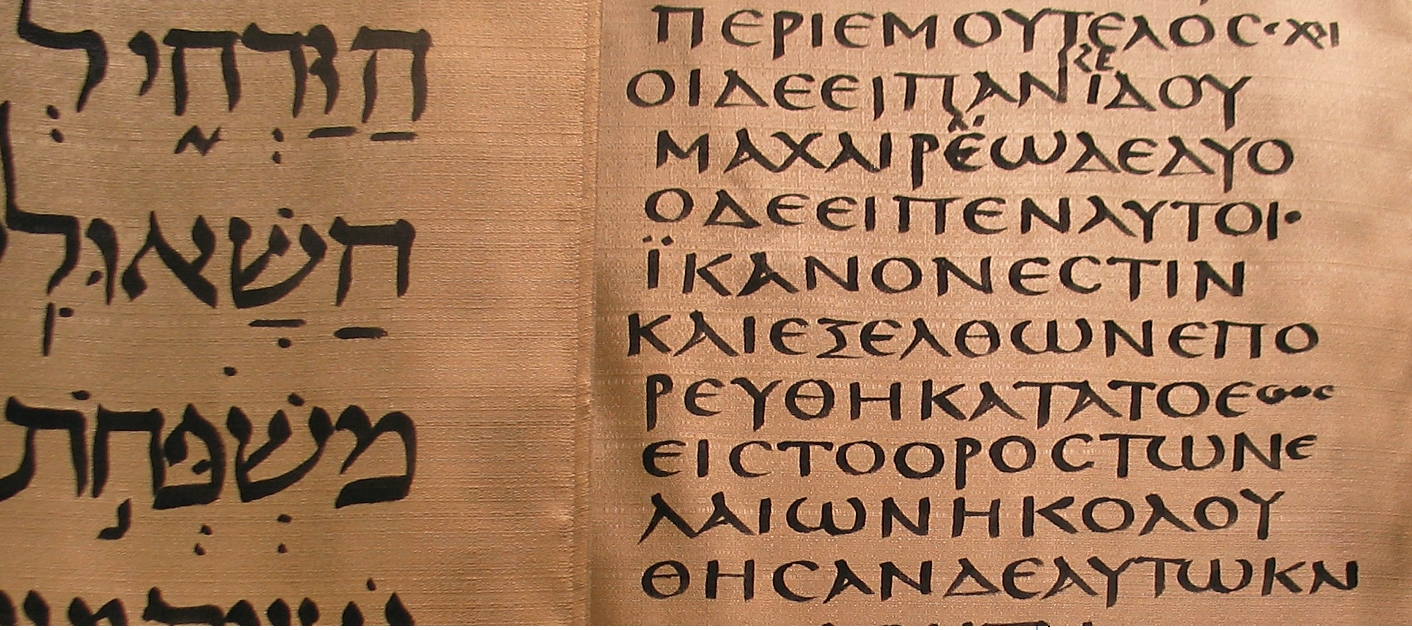Rev. Len Abrams 1 Samuel 3:1-10, John 1: 43-51
The Calling of God
The theme in today’s bible readings is the Calling of God – and how we can take up the challenge to answer that call!
It is not often that we remember sermons. However I remember one sermon from when I was a teenager. It was on the subject of God’s calling and our response. I am not sure why this made such an impression on me, but I have never forgotten it. I do not recall who the speaker was but they painted a picture of someone to whom God’s call came when they were young and were in college or university.
The response to God’s call was “just let me finish my course – then I will be of so much more use and I will go anywhere and do anything for you.” A few years later God’s call came again when the person had recently begun their first job. Their response to God’s call was “just let me get some experience and then I will be of greater use and I will go anywhere and do anything for you.”
Again a few years later God’s call came and the response was “I have a young family and responsibilities, as soon as I have fulfilled my responsibilities, I will go anywhere and do anything for you.”
More years past and the dim call was heard once again to which the response was “as soon as I retire I will go anywhere and do anything for you.” And then finally the response was “just let me enjoy a few years of my retirement for which I have worked so hard, and then I will go anywhere and do anything for you.” And then it was too late.
This morning we hear in our two readings examples of God’s call – one to a young boy called Samuel, and the other to a fairly cynical young man called Nathanael. Samuel heard the voice of God but did not know it was God, and Nathanael was minding his own business sitting alone in the shade of a fig tree, completely unaware that Jesus knew exactly where he was what he had in store for him…..
The main calling is to know Jesus
Now perhaps the emphasis in that sermon all those years ago was slightly incorrect – perhaps it was slightly back-to-front. The first and most important question is not where you might be called to, or what you might be called to do, but “Who is doing the calling?” Perhaps some of us are aware of a calling to something different, something intriguing, something challenging and we are not quite sure what it is or who is calling us. Or perhaps we are quite happy in the shade under our fig tree, thank you very much, and not looking to be called anywhere. If you understand who is calling, then all else falls into place. Jesus’ invitation is out there still today, irrespective of how long you may or may not have been a Christian – Jesus is still reaching out to us and saying “Come, deeper in and higher up and see who I am”.
As we begin to explore who Jesus is, as we begin to get to know him and let him into our lives, into our hearts and into our minds, we will hear his call to life and service. We begin to discover, not only who Jesus is, but who we really are. The irony is that as we surrender ourselves, we find ourselves.
The sovereignty of SELF vs the sovereignty of God
The spiritual life is a lifelong struggle between the sovereignty of SELF versus the sovereignty of God. We live in a society where hearing a call from God makes no sense – we live in a society where SELF is king. I heard Frank Sinatra’s song “I did it my Way” played at someone’s funeral the other day which epitomises this.
The words of the song go, at the end:
“not the words of one who kneels
The record shows, I took the blows
But I did it my way”
I would rather be known as one who does kneel – I hope that the record shows that I took the blows but that I did it HIS way.
My generation embraced this philosophy of independence and individualism, and we taught our children well because doing it MY WAY is the essence of secularism, which is the prevailing religion of our time. In contrast to the tyranny of SELF – to the philosophy of “I DID IT MY WAY” – there is Jesus, who stands full square in front of us and says, I AM THE WAY, THE TRUTH AND THE LIFE.
So – to get back to our original question – the question of God’s call on our lives. The key to answering the question lies in relationship, which should then lead on to activity.
The general and the intimate call
Once we have become aware of God’s primary call into relationship with him and as that relationship begins to transform the way we see the world and our role in it, we then begin to ask the question of what we should be doing with our resources, our time and our talents. The general call of God on our lives is universal and relentless – God desires that all people should turn to him all the time and find their true wholeness in him. The specific call of God on our particular lives, however, is intimate. It is deeply challenging and the ultimate route to self discovery as we increasingly discover who God is.
What are the ways in which God may be calling YOU today. At one level there are a whole lot of ‘jobs’ to be done at Christ Church – there is a lot that goes on behind the scenes to keep everything going and to continue to worship together, care for each other, and support the wider community in which we live. The first and most important thing though, is that he is calling you, and ALL OF US, to deepen our lives and relationships with him. This is a life-long process – learning how to come to Jesus in prayer each day, reading the Bible and listening for his call – just like young Samuel. Out of a life of commitment to Jesus comes a life of service. And that service may be anything from helping at services on Sundays, supporting neighbours in times of difficulty, serving on the PCC or becoming a Church Warden. All these things should NOT be done out of a sense of duty – they should be done out of love and service.
Another way in which God may be calling you is in trained Christian ministry – as a Pastoral Auxiliary with a ministry of caring, as a Reader with a ministry of teaching, or even as a priest or deacon. Don’t think it could never be you! I thought it could never be me! I really do feel the Imposter Syndrome very strongly – who me? A priest??!! That could not possibly be right! But I followed the prompting from within and from others over too many years and here I am now. Don’t be surprised with what God can do if you say to God “I’ll go anywhere and do anything for you”.
I want to share something with you which I came across a couple of years ago – you may have heard of it. In March 2014 the Cabinet Office in the UK undertook a national survey which was published by the BBC. I quote a section of it:
The Cabinet Office has been looking at the relationship between different jobs and levels of life satisfaction, and publicans, it turns out, are in the unhappiest occupation of all. They are closely followed by brickies and debt collectors.
The happiest workers, the research suggests, are vicars and priests. Members of the clergy enjoy the most satisfying lives – but farmers and fitness instructors are pretty jolly too.
This is secular government research. Clergy head the list of 274 different types of jobs. The second on the list is Chief Executive Officers – CEOs – the people on the top of the corporate pile. The CEOs are the highest earners in the table, earning nearly 6 times the incomes of clergy (probably more now) but they don’t have the same level of life satisfaction. (https://www.bbc.co.uk/news/magazine-26671221)
When Karen and I moved into the vicarage in Mid Street at the beginning of December it was the 15th home move we have made in our married lives. We have lived all over the place and done quite a few things and travelled widely but there is nowhere I would rather be at this point in time than right where we are. I feel the most alive doing exactly what I am doing right now.
And so I dare you to listen out for God’s calling to you wherever you are in your life journey today. You may be in precisely the right place in which case you are very blessed. You may need to take on that role in Christ Church even if you are in trepidation doing so. Or perhaps God is calling you to think right outside the box.
Discerning God’s call for you need not be something you do entirely on your own. Speak to those who know you, pray about it. If you want to, send me an email or give me a call. Remember that as we surrender ourselves, we find ourselves. If you stay happily (or miserably) under your fig tree, you may be missing out on what God has in store for you.
Another way in which that sermon I heard all those years ago was perhaps not entirely correct was right at the end when the preacher said “It was too late”. If the primary call of God is into relationship with him, it is never too late. It is never too late. We may have missed out on the adventure which God might have led us on if we had surrendered our whole lives to God 10, 20, 50 years ago, but it is never too late to answer Jesus’ call on our lives right now. He still invites us to “Come, and see who I am”, right now.
–oo0oo–
The Lord Calls Samuel – 1 Samuel 3:1-10
3 The boy Samuel ministered before the Lord under Eli. In those days the word of the Lord was rare; there were not many visions.
2 One night Eli, whose eyes were becoming so weak that he could barely see, was lying down in his usual place. 3 The lamp of God had not yet gone out, and Samuel was lying down in the house of the Lord, where the ark of God was. 4 Then the Lord called Samuel.
Samuel answered, “Here I am.” 5 And he ran to Eli and said, “Here I am; you called me.”
But Eli said, “I did not call; go back and lie down.” So he went and lay down.
6 Again the Lord called, “Samuel!” And Samuel got up and went to Eli and said, “Here I am; you called me.”
“My son,” Eli said, “I did not call; go back and lie down.”
7 Now Samuel did not yet know the Lord: The word of the Lord had not yet been revealed to him.
8 A third time the Lord called, “Samuel!” And Samuel got up and went to Eli and said, “Here I am; you called me.”
Then Eli realized that the Lord was calling the boy. 9 So Eli told Samuel, “Go and lie down, and if he calls you, say, ‘Speak, Lord, for your servant is listening.’” So Samuel went and lay down in his place.
10 The Lord came and stood there, calling as at the other times, “Samuel! Samuel!”
Then Samuel said, “Speak, for your servant is listening.”
Jesus Calls Philip and Nathanael – John 1:43-51
43 The next day Jesus decided to leave for Galilee. Finding Philip, he said to him, “Follow me.”
44 Philip, like Andrew and Peter, was from the town of Bethsaida. 45 Philip found Nathanael and told him, “We have found the one Moses wrote about in the Law, and about whom the prophets also wrote—Jesus of Nazareth, the son of Joseph.”
46 “Nazareth! Can anything good come from there?” Nathanael asked.
“Come and see,” said Philip.
47 When Jesus saw Nathanael approaching, he said of him, “Here truly is an Israelite in whom there is no deceit.”
48 “How do you know me?” Nathanael asked.
Jesus answered, “I saw you while you were still under the fig tree before Philip called you.”
49 Then Nathanael declared, “Rabbi, you are the Son of God; you are the king of Israel.”
50 Jesus said, “You believe because I told you I saw you under the fig tree. You will see greater things than that.” 51 He then added, “Very truly I tell you, you will see ‘heaven open, and the angels of God ascending and descending on’ the Son of Man.”
–oo0oo–


 Vine. And here we have at the Last Supper Jesus saying that he is the true Vine. He redeems Israel which has not lived up to the expectations of the Almighty. In doing so he reaffirms once again that he is the awaited Messiah.
Vine. And here we have at the Last Supper Jesus saying that he is the true Vine. He redeems Israel which has not lived up to the expectations of the Almighty. In doing so he reaffirms once again that he is the awaited Messiah.



 meaning of which has been the topic of wide debate. It has been translated ‘The one who causes to be’ and ‘the one who is’. The name denotes absolute being as it is in the continuing tense implying neither beginning nor end. The Hebrew form of the phrase – YHWH – became the unsayable divine name. The name denotes an active God involved in the world as the ultimate CAUSE, who is particularly active in the salvation history of the Israelites and all humanity, as is illustrated in the reason for his revelation and commission to Moses in this passage.
meaning of which has been the topic of wide debate. It has been translated ‘The one who causes to be’ and ‘the one who is’. The name denotes absolute being as it is in the continuing tense implying neither beginning nor end. The Hebrew form of the phrase – YHWH – became the unsayable divine name. The name denotes an active God involved in the world as the ultimate CAUSE, who is particularly active in the salvation history of the Israelites and all humanity, as is illustrated in the reason for his revelation and commission to Moses in this passage.  Grace in Christian theology is the undeserved love of God for ALL of God’s creatures. This is a love which we can never earn by our “goodness”. It is freely given – we can accept it or reject it, but we can never earn it. One of my heroes is Bruce Springsteen. I came across the lyrics of a song I have heard often but never really listened to the words – it is actually a Gospel song. It is called Land of hope and dreams. It talks of a train and calls for all to get on board.
Grace in Christian theology is the undeserved love of God for ALL of God’s creatures. This is a love which we can never earn by our “goodness”. It is freely given – we can accept it or reject it, but we can never earn it. One of my heroes is Bruce Springsteen. I came across the lyrics of a song I have heard often but never really listened to the words – it is actually a Gospel song. It is called Land of hope and dreams. It talks of a train and calls for all to get on board. On Mothering Sunday, I am struck with the gratitude I have for all my dear mum did for me, often unseen and now largely forgotten in detail as she has long since taken that train and passed through the valley of the shadow herself. I am confident that I will see her again through the Grace of God and the work of Jesus. Now I am very aware that thankfulness in hindsight is one thing but that in the hurly-burly of life a mother’s role is often thankless, especially if you are to be in social isolation with the little darlings for the next several weeks.
On Mothering Sunday, I am struck with the gratitude I have for all my dear mum did for me, often unseen and now largely forgotten in detail as she has long since taken that train and passed through the valley of the shadow herself. I am confident that I will see her again through the Grace of God and the work of Jesus. Now I am very aware that thankfulness in hindsight is one thing but that in the hurly-burly of life a mother’s role is often thankless, especially if you are to be in social isolation with the little darlings for the next several weeks. 
 What Paul is saying is that all these things at one time added to the PLUS side of the equation which made him righteous before God, as though God holds a scale for each of us and puts all the good things on one side and all the bad on the other. “He was such a good person.” Paul was convinced that his previous credentials and his actions were enough.
What Paul is saying is that all these things at one time added to the PLUS side of the equation which made him righteous before God, as though God holds a scale for each of us and puts all the good things on one side and all the bad on the other. “He was such a good person.” Paul was convinced that his previous credentials and his actions were enough.